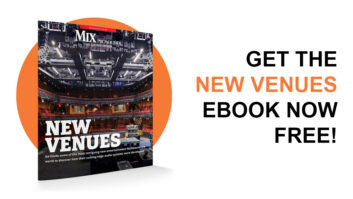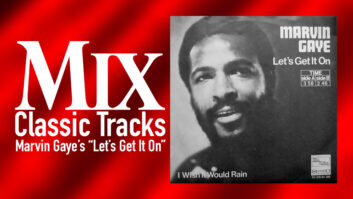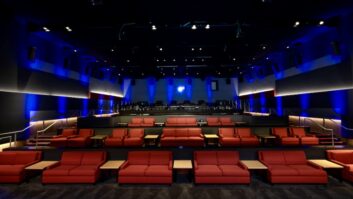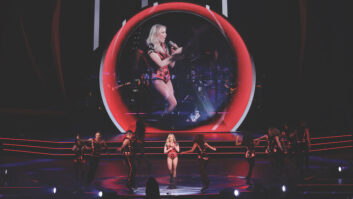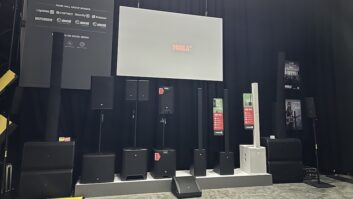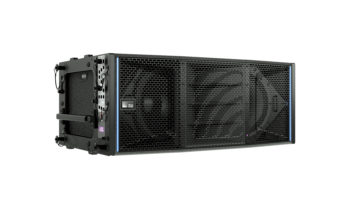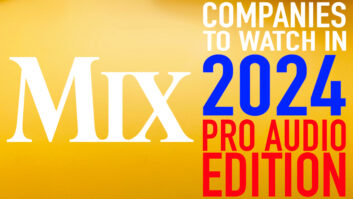In recent years the number of pro audio recording formats has mushroomed; the alphabet soup of acronyms now includes DASH, PD, ADAT, DA-88, PCM, M/O, DAT and so on. More and more recordings are made in multiple locations as musicians and producers overdub their parts independently in a variety of personal and project studios. A typical project might pass through as many as six formats-analog multitrack for the basics, RADARs and Pro Tools for overdubs and tweaking, digital multitrack for mix playback, back to analog for the mix, with the final digital master going to DAT, CD-R and M/O for distribution.
The need to convert among these formats is driving rapid growth in a new market sector: the dedicated format transfer business. At least four new dedicated transfer rooms have opened in major recording markets since the beginning of the year: The TransferMat at rental company Toy Specialists in New York City; the Transfer Room at Sound Stage Studios in Nashville; a transfer room under the auspices of Post Tech Services, a division of World Link Digital, a Burbank, Calif. rental company; and a transfer service at the newly opened Diginote studio in Miami’s South Beach district.
Toy Specialists president Bill Tesar sees the format transfer business as a natural outgrowth of the rental business. “No one can have everything anymore-there’s just too much stuff,” he says, pointing out that transfer facilities offer a one-stop solution for customers who cannot manage all of the available formats. Both Tesar and Dave Rosen, owner of World Link Digital, did some market research before taking the plunge. “When we brought the idea up to our clients, they were excited,” says Rosen, whose company specializes in Pro Tools rentals. “A lot of our [rental] clients can’t transfer without renting the equipment, and they often don’t have the space or the proper power requirements for large formats. So the idea of a single location to be able to transfer from any format to any format sounded great to them.”
Adds Tesar, “Someone might start on an analog multitrack, take the tracks home to do overdubs on their own MDM, go to another facility using a nonlinear multitrack for vocals, then want to mix on an open-reel digital format,” he says. “That’s not an unusual sequence of events these days, and the need for format transfers at every stage is growing along with it.”
Both rental companies can tap into their pools of rental equipment to outfit their format transfer rooms, but they stress that much of the equipment is dedicated. “The core equipment of The TransferMat lives there,” says Tesar, listing six Tascam DA-98s, six Alesis ADAT XT-20s, Lynx II synchronizers for lock ups and a host of other equipment. Those are run through a pair of Yamaha 02R digital consoles and Otari UFC-24 universal format converters, as well as custom patch bays. Rosen’s facility has a dedicated 24-bit Pro Tools II system with Apogee converters, as well as a Studer A800 MkII analog multitrack, a Sony PCM-800 MDM and ADATs. A Sony 3348 digital multitrack shared with another rental company is a regular visitor to the transfer suite.
Like many studios, Sound Stage in Nashville found that transfer sessions ate into studio time that could otherwise have been more profitably sold. “We were having to wait for sessions to end and do the transfers late at night,” says the five-studio complex’s manager Michael Koreiba. “After a while, we realized that there was enough business to start a whole new business within the studio.” Sound Stage’s dedicated format transfer room features a Mackie 32-bus console and Yamaha NS-10 monitors and supports an array of formats, including the PD format, which has maintained a higher profile in Nashville than anywhere else in the U.S. (though it’s still also popular in countries such as Italy).
Diginote opened in June of this year and, like much of Miami’s rapidly expanding studio market, is primarily a Pro Tools facility. But Diginote’s owners quickly discovered a market for transfer services. “It’s like pulling teeth to get transfers done at many studios,” observes “Doc” Wiley, one of those owners. “You have to rent certain items like the Otari box, then you have to find time in between sessions to do it. That usually turns out to be in the middle of the night, and that’s when people are more prone to make mistakes.” Diginote can handle transfer chores between such formats as M/O, DA-88/98 and ADAT, with Euphonix R1 and Otari RADAR capability probably forthcoming, says Wiley. In the meantime, Diginote has added a fourth Apogee 8000 converter to enable transfers while the studio is working on other projects.
TRANSFER RATESRates for format transfers vary according to facility and format. Sound Stage’s Koreiba has established a base rate of $250 per hour, but some rates are flexible to accommodate low-end transfers, such as ADAT to DA-88. As with studio time, transfer session rates are discounted for full days, and Koreiba recently did a 14-hour transfer for a day rate of $1,500. “But we hold the line on upper-end transfers, because a transfer between two 48-track digital machines is tying up $400,000 in equipment,” he says. The TransferMat’s rates range between $125 to $395 per hour, based solely on the level of technology involved. Tesar says he also charges a premium for “attended” sessions, which the client schedules for a specific day and time and is present at. “That takes away some of the flexibility we have in scheduling, so it makes sense to charge a bit more for it,” Tesar explains. World Link Digital’s rates range from $50 to $350 per hour, again based on the technology used. Diginote charges between $150 and $250 per hour, depending upon formats, and guarantees same-day turnaround if the project is in by 11 a.m.
NEW REVENUE OPPORTUNITIESThe format transfer concept is multifaceted and offers several opportunities for ancillary revenues-Toy Specialists sells tapes pre-formatted for MDMs, for example. The TransferMat is currently archiving for publisher Warner Chappell Music, and it recently completed archiving the entire Kinks catalog to Genex 8000 magneto/optical disk under the supervision of Kinks leader Ray Davies. Tesar has also installed ISDN lines and uses the TransferMat room as the site for Dolby Fax and other audio telecommunications projects, including the monitoring of mixes for the soundtrack of Scream 2, which was done in London.
Sound Stage has formed a relationship with tape manufacturer Quantegy. With much of Nashville’s archives on the fading PD format, studio general manager Warren Rhoades and Quantegy regional sales manager Tom Clark realized that renewing those archives was about to become an issue. Jointly and individually, they have contacted Nashville record labels and promoted the benefits of archiving to analog tape. “The thing about analog is that it’s now where it’s always going to be,” says Koreiba. “Digital formats keep changing, but you’ll always be able to recover the information from an analog tape.” Quantegy and Transfer Room have planned a gathering for about 60 label representatives to further that dialog (and sell more tape). The Transfer Room has also noted an increased need for baking services and has installed a convection oven for treating old analog tapes.
TO MARKET, TO MARKETEach company has marketed its services slightly differently. Toy Specialists has retained a professional public relations agency in New York; Sound Stage has used a targeted fax campaign, which has brought in transfer work from as far away as Kansas, Virginia and New Orleans; World Link Digital has relied upon word of mouth. Diginote has discovered that a useful marketing tool for its transfer services has been the registration of various domain names, including “24track2adat,” “24track2tascam,” and so on. “The best one is ’24track.com,’ which I’m amazed no one else has gotten in all this time,” Wiley says.
With the bulk of his rental market based on Pro Tools, Rosen sees his transfer service as a link to future business with up-and-coming producers and engineers, many of whom are now working on hard disk-based systems and MDMs in their homes or in small project studios. “They’ll all be moving up into bigger studios eventually, and they’ll be working in a hybrid environment of things like Pro Tools and 3348s,” he says.
All those interviewed realize that they are “on the ground floor” in a profitable new business niche, one that probably won’t stay this exclusive for long. “I’m sure it’s going to get more competitive as time goes on, and there’s going to be an effect on the rates that can be charged for it,” Rosen observes. “The thing is that it’s going to be like any other service business-you can stay on top only if you give the best service possible and never, never make a mistake.” Tesar agrees: “There’s not enough transfer work out there to support ten of these kinds of places in one city.”

